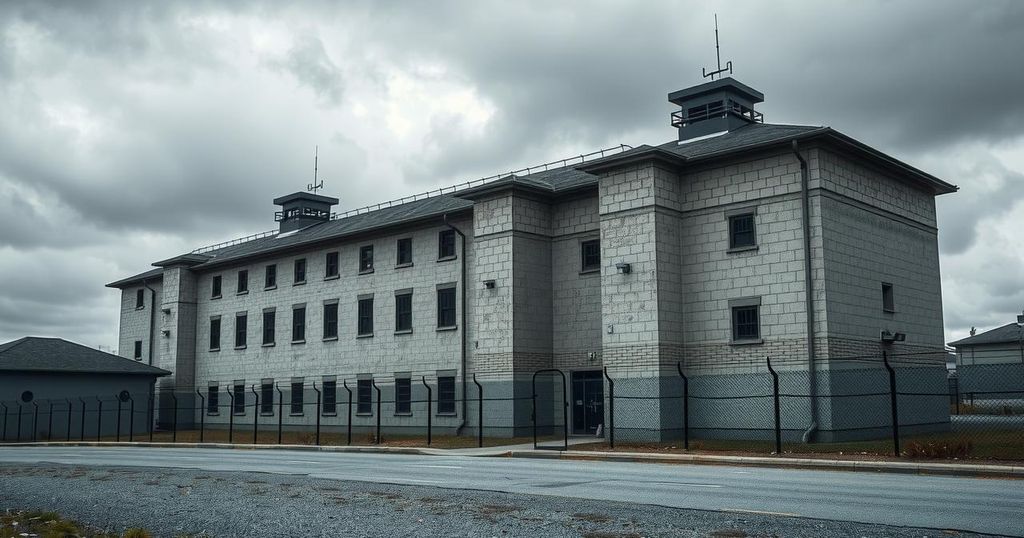El Salvador is housing 238 members of Venezuela’s Tren de Aragua gang and 23 MS-13 members, as part of a controversial U.S. deal worth $6 million for one year. The arrangement aims to provide a sustainable prison model for El Salvador but has raised human rights concerns amid legal challenges. This landmark agreement could influence global practices in detention outsourcing.
El Salvador has received 238 alleged members of Venezuela’s Tren de Aragua gang and 23 MS-13 members from the U.S. These individuals are now housed in the Central American nation’s Terrorism Confinement Centre (CECOT), marking the initiation of a novel model of cross-border incarceration services. This arrangement was confirmed by officials from both countries and raises significant financial implications.
The U.S. government will pay El Salvador $6 million to detain approximately 300 individuals for one year, with potential renewal options. Given El Salvador’s substantial public debt of $31 billion (82% of its GDP), this deal is critical for President Nayib Bukele, who aims to achieve a self-sustaining prison system. The annual cost of housing each prisoner is around $20,000, with an additional $15 million possibly directed to El Salvador for further gang member detentions.
Though there were last-minute legal challenges halting deportations, they progressed nonetheless. White House officials assert compliance with the law. The deportations were executed under the 1798 Alien Enemies Act, which had not been invoked since WWII. This law allowed for expedited deportations without standard legal protections, as President Trump labelled the Venezuelan gang an “invasion” of U.S. territory.
The CECOT, a $70 million facility opened in 2023, has a capacity for 40,000 inmates and is pivotal to this initiative. El Salvador’s interest in offering this facility to foreign governments, especially the U.S., aligns with a broader trend; total annual U.S. expenditures on correctional facilities average $80.7 billion for public institutions and $3.9 billion for private ones. Bukele’s crackdown on gang violence has significantly altered El Salvador’s public safety landscape.
Despite these successes, the CECOT faces criticism from human rights organizations. Reports from NGO Cristosal raise concerns over visitation bans and lack of rehabilitation programs. The Inter-American Commission on Human Rights (IACHR) has also voiced concerns about prison conditions, noting 261 deaths during Bukele’s anti-gang policies.
Families of deported individuals contest their criminal designations, asserting economic hardships led them to seek refuge in the U.S. They call for individual case reviews, arguing many are not criminals. Venezuela’s government has condemned the deportations, likening them to historical injustices, while the rationale behind sending alleged criminals to El Salvador remains unclear, particularly after Venezuela accepted repatriation flights.
This deal represents a potential template for international detention outsourcing, with interest emerging from Chilean politicians for similar arrangements. The cross-border agreement showcases shifting trends in international corrections management, akin to the localized incarceration economy seen in Fremont County, Colorado.
The U.S.-El Salvador deal strengthens ties between Trump and Bukele, both known for their stringent crime and immigration policies. The arrangement addresses America’s prison overcrowding while emphasizing a firm stance on immigration and transnational crime. As this innovative model of incarceration develops, it will be imperative for global policymakers and human rights advocates to closely monitor and assess its implications on international justice.
The formation of this transnational incarceration approach could fundamentally alter how nations engage in prison outsourcing and reshape the future of correctional policies across the globe.
This agreement between the U.S. and El Salvador exemplifies a significant shift in international corrections management, establishing a controversial model of outsourcing incarceration. While it promises financial benefits for El Salvador, it also raises pressing human rights concerns, emphasizing the need for careful scrutiny of the implications for justice systems globally.
Original Source: www.intellinews.com






